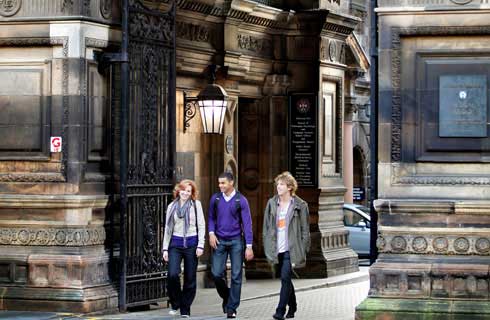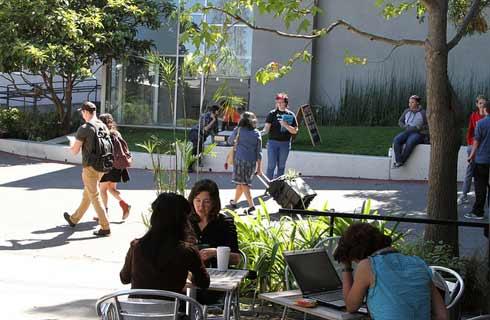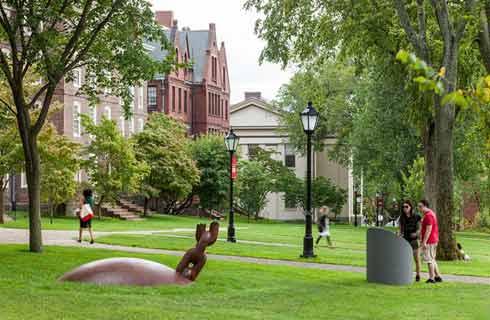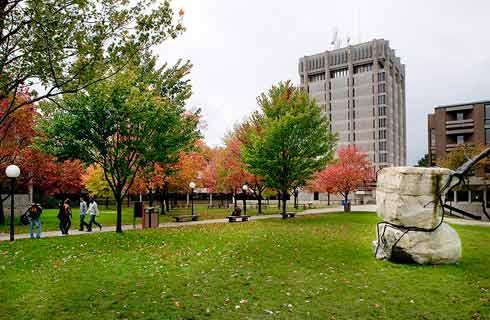化学理学学士
Bachelor of Science in Chemistry

学历文凭
Bachelor Degree

专业院系
Department of Chemistry and Biochemistry

开学时间

课程时长

课程学费

国际学生入学条件
Submit your transcripts in English from all secondary schools/high schools attended. Full transcripts from each individual school year must be provided.
Submit official transcripts showing all work in detail. If you have completed any courses at the college or university level.
Obtain certified English translations of all documents not presented in English.
All documents submitted for admission become property of the University and will not be returned.
Submit a letter of recommendation with your application.
TOEFL: Non-native English speakers must take the Test of English as a Foreign Language (TOEFL) given by the Educational Testing Service and arrange for scores to be sent to the Office of Admission. (LMU's TOEFL Institution code is 4403) The University's minimum standard for undergraduate admission is 90 for the Internet-based TOEFL.
IELTS: As an alternative to taking the TOEFL, non-native English speakers may also take the International English Language Testing System (IELTS).The University's minimum standard for undergraduate admission is 6.5.
Submit official transcripts showing all work in detail. If you have completed any courses at the college or university level.
Obtain certified English translations of all documents not presented in English.
All documents submitted for admission become property of the University and will not be returned.
Submit a letter of recommendation with your application.
TOEFL: Non-native English speakers must take the Test of English as a Foreign Language (TOEFL) given by the Educational Testing Service and arrange for scores to be sent to the Office of Admission. (LMU's TOEFL Institution code is 4403) The University's minimum standard for undergraduate admission is 90 for the Internet-based TOEFL.
IELTS: As an alternative to taking the TOEFL, non-native English speakers may also take the International English Language Testing System (IELTS).The University's minimum standard for undergraduate admission is 6.5.
IDP—雅思考试联合主办方

雅思考试总分
6.5
- 雅思总分:6.5
- 托福网考总分:90
- 托福笔试总分:160
- 其他语言考试:Duolingo English Test -The University's minimum standard for undergraduate admission is 120.
CRICOS代码:
申请截止日期: 请与IDP联系 以获取详细信息。
课程简介
LMU的化学专业帮助学生了解科学的经验性质,同时获得化学知识的掌握和发展实用的实验技能。专业人士将利用最新的方法和技术,在传统的合成和分析工作台化学上获得实践经验。学生将受益于小班和实验室规模,每天与教职员工的个人联系以及化学仪器的操作。学生将学习化学领域的广泛介绍,包括原子理论,化学命名法,化学方程式和反应,热化学,电化学和酸碱化学。学生还将学习生物化学,有机化学,物理化学和分析化学。许多学生参加了无机化学,食品化学,葡萄酒化学,法医化学和其他高级课程的选修课程。
LMU's Chemistry major helps students understand the empirical nature of the science while gaining intellectual mastery of chemistry and developing practical experimental skills.<br><br>Majors gain hands-on experience in traditional synthetic and analytic bench chemistry, utilizing the latest methods and techniques. Students benefit from small class and laboratory sizes, daily personal contact with faculty and staff, and operation of chemical instrumentation.<br><br>Students learn a broad introduction to the field of chemistry including atomic theory, chemical nomenclature, chemical equations and reactions, thermochemistry, electrochemistry, and acid-base chemistry. Students also study biochemistry, organic chemistry, physical chemistry, and analytical chemistry. Many students take elective courses in inorganic chemistry, food chemistry, wine chemistry, forensic chemistry, and other advanced courses.
LMU's Chemistry major helps students understand the empirical nature of the science while gaining intellectual mastery of chemistry and developing practical experimental skills.<br><br>Majors gain hands-on experience in traditional synthetic and analytic bench chemistry, utilizing the latest methods and techniques. Students benefit from small class and laboratory sizes, daily personal contact with faculty and staff, and operation of chemical instrumentation.<br><br>Students learn a broad introduction to the field of chemistry including atomic theory, chemical nomenclature, chemical equations and reactions, thermochemistry, electrochemistry, and acid-base chemistry. Students also study biochemistry, organic chemistry, physical chemistry, and analytical chemistry. Many students take elective courses in inorganic chemistry, food chemistry, wine chemistry, forensic chemistry, and other advanced courses.
相关申请
 预科
预科 奖学金
奖学金 实习机会
实习机会 在校学习
在校学习 跨境学习
跨境学习 校园授课-线上开始
校园授课-线上开始 在线/远程学习
在线/远程学习
开学时间&学费
学费信息仅供参考,请与IDP联系以获取详细信息
| 开学时间 | 时长 | 学费 | 地点 |
|---|
本校相关课程

亚洲及太平洋研究文学学士学位
学历文凭
Bachelor Degree
开学日期
课程费用总额


Chicana / o和Latina / o研究文学士
学历文凭
Bachelor Degree
开学日期
课程费用总额


古典与考古学学士学位
学历文凭
Bachelor Degree
开学日期
课程费用总额


经济学文学学士
学历文凭
Bachelor Degree
开学日期
课程费用总额


英语文学学士
学历文凭
Bachelor Degree
开学日期
课程费用总额


历史文学学士-通才课程
学历文凭
Bachelor Degree
开学日期
课程费用总额

其他相关课程

化学哲学博士[量子信息合作计划]
 滑铁卢大学
滑铁卢大学学历文凭
Ph.D.
开学日期
课程费用总额


化学理学硕士[量子计算合作计划]
 滑铁卢大学
滑铁卢大学学历文凭
Masters Degree
开学日期
课程费用总额


化学哲学博士
 滑铁卢大学
滑铁卢大学学历文凭
Ph.D.
开学日期
课程费用总额


化学理学硕士
 滑铁卢大学
滑铁卢大学学历文凭
Masters Degree
开学日期
课程费用总额


化学理学士(荣誉学位)
 滑铁卢大学
滑铁卢大学学历文凭
Bachelor Degree with Honours
开学日期
课程费用总额


化学科学硕士
 劳伦森大学
劳伦森大学学历文凭
Masters Degree
开学日期
课程费用总额










 美国
美国
